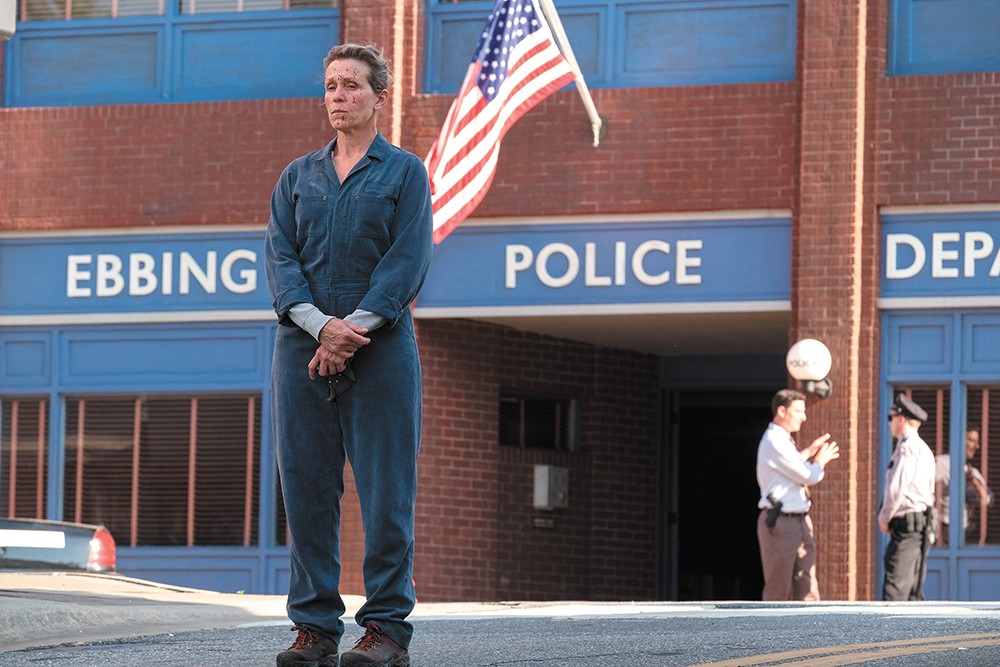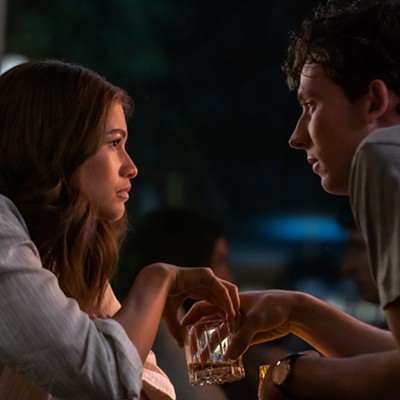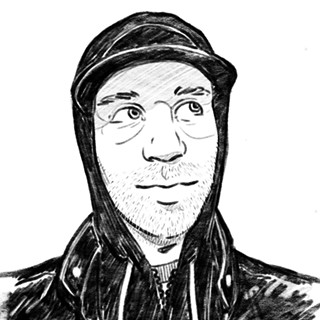Grief is an overpowering substance. When mixed with a lack of resolution and a splash of guilt, it's a poisonous cocktail.
Mildred Hayes (Frances McDormand) has chugged the stuff by the gallon ever since her daughter's death. While the world seems to continue on, her anger only intensifies. That is, until she notices three dilapidated billboards in a rundown field on a seldom-used road near her home. A short trip to the local ad office later, her message is clear as it appears on the new bold red billboards:
RAPED WHILE DYING. AND STILL NO ARRESTS? HOW COME, CHIEF WILLOUGHBY?
Writer-director Martin McDonagh's dark dramedy Three Billboards Outside of Ebbing, Missouri follows Mildred's quest for justice in small town America. The unrelenting and unwavering mother cares not about becoming an unseemly social pariah as she publically pressures the town's beloved police chief, Bill Willoughby (Woody Harrelson), and irks his bumbling, incompetent and racist underling officer Jason Dixon (Sam Rockwell).
She has no time for appealing to Southern manners if uncouthness might somehow yield results in the unsolved case that lacks any viable suspects. It matters not that Willoughby is a genuinely good officer who didn't come up empty for lack of trying, because the old college try isn't bringing back her little girl (or at least punishing those who took her). Shaming, threats, illness, malicious dentists, death, her own son's pleas — nothing will stop her quest. It's all she has.
Three Billboards provides a platform for its stellar cast to shine, and their performances are the reason to seek out the film. The fiery determination and barely concealed sorrow that McDormand conveys in scene after scene drives the action and the discomfort (it'll be stunning if she doesn't get a Best Actress nomination). In an understated turn, Harrelson's Willoughby serves as the calm, grounding presence for the vitriol and idiocy swirling around him. And that's all before getting to Caleb Landry Jones' magnetic and award-worthy supporting role as the too-urban-for-this-podunk-town-but-not-quite-sly-enough-to-get-out slickness of billboard salesman Red Welby.
But problems arise as a result of McDonagh's inconsistent script. At times, things are absolutely sublime and humming along with crisp dramatic and cutting comedic dialogue. Mildred's conversation with the local priest who comes to her house in an attempt to shame her into taking down the billboards (and her ensuing rant on culpability and religious hypocrisy) is as good as anything set to film in 2017. But moments like these get undercut by agonizingly on-the-nose moments and believability-stretching, absurd humor (two words: arson dancing).
While the dark comedy strewn throughout the film can pack a punch, it also swings and misses wildly. This is most evident in Dixon. He radiates obliviousness to Dumb and Dumber-level buffoonery, but also apparently has a history of torturing black folks. Rockwell fully commits to the role, but at times seems like a character plucked from another movie. He never feels like an actual person, but more how, from a distance, a UK screenwriter might imagine a stereotypical backwoods cop.
Three Billboards wants its audience to both invest emotionally in the realness of its drama and also not take things too seriously when it delves into comic absurdity. That makes the whole package feel a few degrees off. There's plenty about American law enforcement and small town "morality" that's worth eviscerating, but Three Billboards fails to hit it in a way that resonates and struggles to locate any sense of authenticity.♦


























